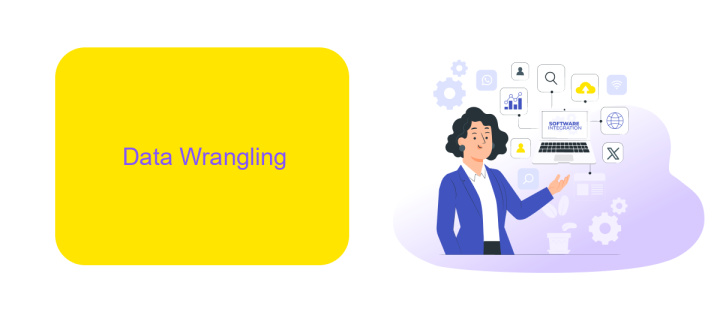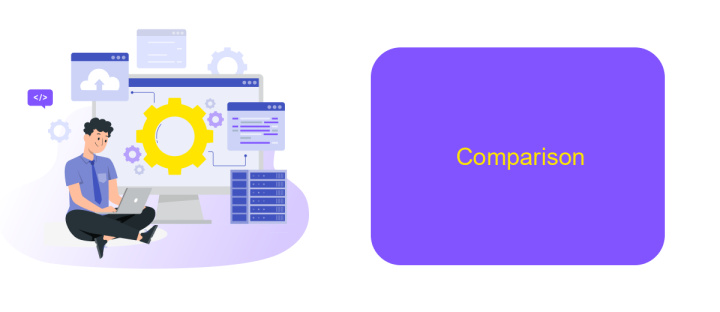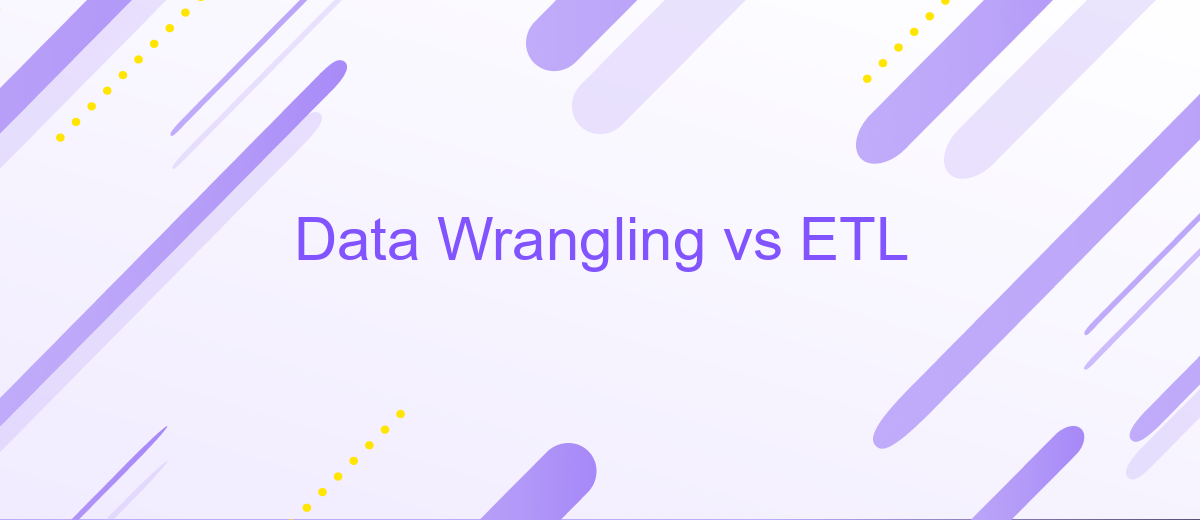Data Wrangling vs ETL
Data Wrangling and ETL (Extract, Transform, Load) are critical processes in data management, each serving unique purposes in preparing data for analysis. While both aim to convert raw data into a usable format, their methodologies and applications differ significantly. This article explores the distinctions between Data Wrangling and ETL, helping you understand their roles and when to use each approach.
Introduction
Data wrangling and ETL (Extract, Transform, Load) are essential processes in the data management landscape. While both aim to prepare data for analysis, they serve different purposes and involve distinct methodologies. Understanding these differences is crucial for businesses to choose the right approach for their data needs.
- Data Wrangling: Focuses on cleaning and structuring raw data into a usable format.
- ETL: Involves extracting data from various sources, transforming it to fit operational needs, and loading it into a data warehouse.
Choosing between data wrangling and ETL depends on the specific requirements of your data projects. For instance, data wrangling is often used in exploratory data analysis, while ETL is essential for integrating data from multiple sources into a centralized repository. Tools like ApiX-Drive can facilitate these processes by automating data integrations, ensuring seamless data flow across different platforms.
Data Wrangling

Data Wrangling, also known as data munging, is the process of cleaning, transforming, and organizing raw data into a desired format for analysis. This involves handling missing values, correcting errors, and reformatting data to make it consistent and usable. Unlike ETL (Extract, Transform, Load), which focuses on moving data between systems, data wrangling is more about preparing data for specific analytical tasks.
One of the key aspects of data wrangling is the ability to integrate various data sources. Tools like ApiX-Drive can greatly simplify this by providing a platform to connect and automate data flows between different applications and services. With ApiX-Drive, users can set up integrations without any coding, ensuring that data from multiple sources is accurately combined and ready for analysis. This streamlines the data wrangling process, making it more efficient and less error-prone.
ETL

ETL stands for Extract, Transform, Load, and it is a vital process in data management and integration. The ETL process involves extracting data from various sources, transforming it into a suitable format, and loading it into a destination system, such as a data warehouse or database. This process ensures that data is consistent, reliable, and ready for analysis.
- Extract: Data is collected from multiple sources, such as databases, APIs, and flat files.
- Transform: The extracted data is cleaned, standardized, and transformed to meet the requirements of the target system.
- Load: The transformed data is loaded into the target system for storage and analysis.
ETL tools and services, like ApiX-Drive, can automate and streamline the integration process, making it easier to manage data from various sources. ApiX-Drive offers a user-friendly interface and robust features that help businesses set up and maintain their integrations efficiently. By leveraging such tools, organizations can ensure their data is accurate and accessible, ultimately supporting better decision-making and operational efficiency.
Comparison

Data Wrangling and ETL (Extract, Transform, Load) are crucial processes in data management, yet they serve different purposes. Data Wrangling focuses on cleaning and transforming raw data into a more usable format. This process is often manual and iterative, involving data exploration, cleaning, and reshaping.
On the other hand, ETL is a systematic process designed to extract data from various sources, transform it into a suitable format, and load it into a data warehouse or database. ETL processes are typically automated and involve scheduled operations to handle large volumes of data efficiently.
- Purpose: Data Wrangling is for data preparation; ETL is for data integration.
- Process: Data Wrangling is often manual; ETL is automated.
- Tools: Data Wrangling uses tools like Python and R; ETL uses platforms like ApiX-Drive.
- Frequency: Data Wrangling is ad-hoc; ETL is scheduled.
In summary, while both Data Wrangling and ETL aim to make data more useful, they cater to different stages and needs of data processing. Tools like ApiX-Drive can streamline ETL processes by automating data integrations across various platforms, thus enhancing efficiency.


Conclusion
In conclusion, both Data Wrangling and ETL are essential processes in the realm of data management, each serving distinct yet complementary roles. Data Wrangling focuses on the cleaning and transformation of raw data into a more usable format, often requiring manual intervention and domain-specific knowledge. ETL, on the other hand, is a more automated process designed to extract, transform, and load data from various sources into a centralized repository for analysis and reporting. Understanding the nuances of each process can significantly enhance the efficiency and accuracy of data-driven decision-making.
Moreover, integrating tools like ApiX-Drive can streamline these processes by automating data flows between different systems and applications. ApiX-Drive offers a user-friendly interface and robust capabilities for setting up integrations without requiring extensive technical expertise. By leveraging such tools, organizations can ensure that their data pipelines are both efficient and reliable, ultimately leading to more informed business insights and strategies.
FAQ
What is the difference between Data Wrangling and ETL?
When should I use Data Wrangling instead of ETL?
Can Data Wrangling and ETL be used together?
What tools can help automate Data Wrangling and ETL processes?
Is Data Wrangling more time-consuming than ETL?
Time is the most valuable resource for business today. Almost half of it is wasted on routine tasks. Your employees are constantly forced to perform monotonous tasks that are difficult to classify as important and specialized. You can leave everything as it is by hiring additional employees, or you can automate most of the business processes using the ApiX-Drive online connector to get rid of unnecessary time and money expenses once and for all. The choice is yours!

